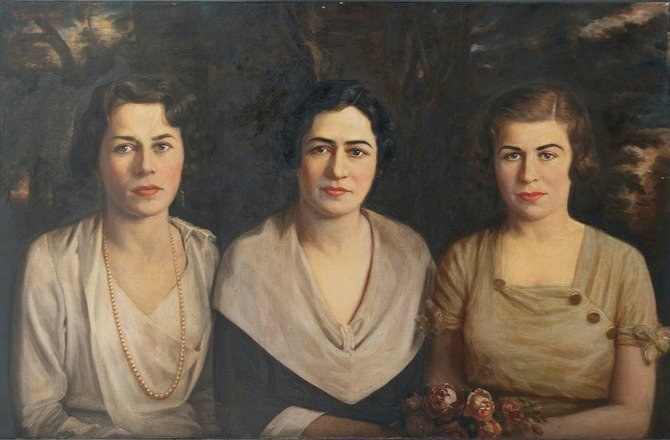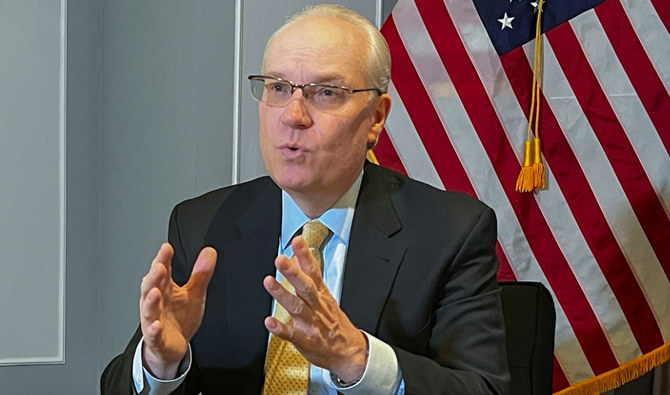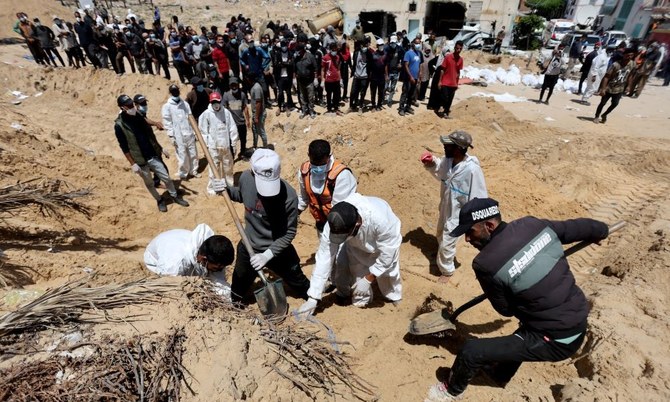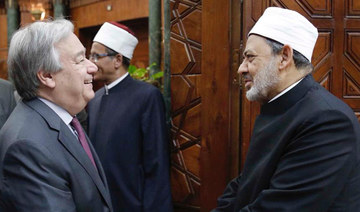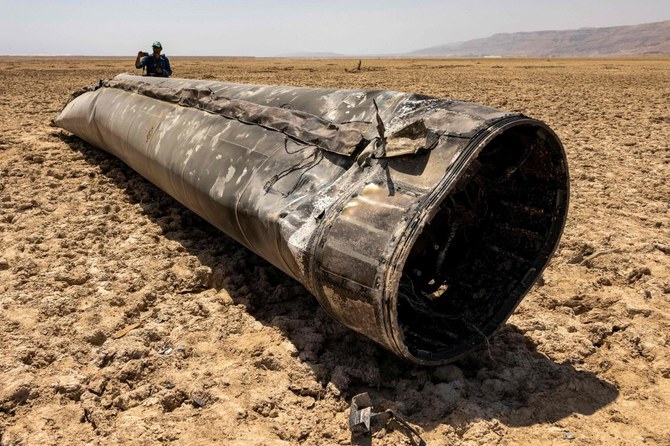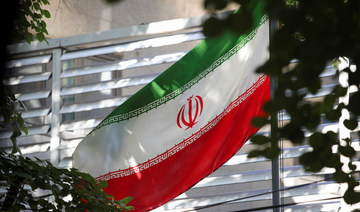DUBAI: They say that history repeats itself. The political turmoil in Lebanon and the ongoing civil war in Syria have led to an alarming exodus of thousands of young, educated Arabs seeking safety and better opportunities abroad. It’s a familiar pattern; a similar mass migration from the Levant took place a century ago.
By the early 1900s, the United States was a major destination for immigrants from around the world. It is estimated that around 100,000 Arabs, hailing predominantly from modern-day Syria and Lebanon (collectively referred to as ‘Greater Syria’ and under Ottoman rule at the time) — made their way to America between 1880 and 1940, seeking economic prosperity.
A new virtual exhibition — entitled “Turath” (heritage in Arabic) — sheds light on the narratives of the early Arab American community and pays homage to their accomplished but little-known artistry, from painting to performance.
“Turath,” which runs online throughout 2021, has been organized by North Carolina State University’s Moise A. Khayrallah Center for Lebanese Diaspora Studies. The center’s director is Lebanese professor of history Dr. Akram Khater, who arrived in the US in 1978 shortly after the outbreak of the civil war. He told Arab News why the theme of “Turath” is crucial and relevant in this day and age.
“Arabs in America are not really part of the narrative of America,” says Khater, who co-curated “Turath.” “We’re not part of the building of what America is today. Rather we only emerge in the minds of most Americans as the quintessential anti-American — the terrorist, the religious extremist — and 9/11 only reemphasized that and magnified it so that we became alien. We wanted to show that not only have we been here for 150 years, like a lot of other immigrants, but that we are also part of the cultural scene in America.”
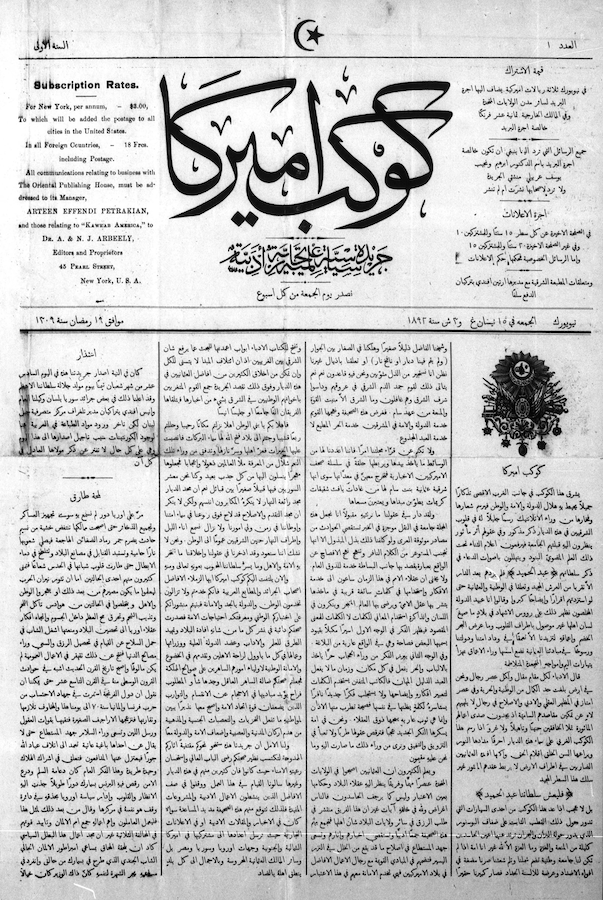
‘Kawkab Amirka,’ 15 April 1892, Khayrallah Center Archive. (Supplied)
To demonstrate this point, the center has joined forces with a number of established institutions, including Michigan’s Arab American National Museum and Lebanon’s Gibran National Committee, to make a varied array of historical objects and archival imagery accessible to the public. The result is fascinating, and may be surprising to some. Exhibits include an 1892 newspaper spread of North America’s first Arabic newspaper ‘Kawkab Amirka’ (Star of America), an early and sophisticated Remington Arabic typewriter, a rare Vogue photograph of actress Mary Nash in the 1920s wearing jewelry by the journalist-turned-designer Marie Azeez El-Khoury.
“Women have been part of immigration from the very beginning,” explains Khater on the exhibit’s strong female presence. “Women were always working — they were working in textile factories, and — certainly in culture — they were entrepreneurs and producers. That’s not to romanticize and say they were all strong; some women were not, just like some men were broken by immigration. It was hard — you just leave things you know to (go to) a place that, at best, tolerates you.”
Through the five sections of the exhibit, “Turath” includes writers, artists, and musicians who flourished through their craft but did not receive the same recognition as their popular contemporaries — intellectuals Ameen Rihani and Kahlil Gibran, who were members of New York’s The Pen League, known in Arabic as Al-Rabita Al-Qalamiyya.
“I think Gibran is very impressive and he accomplished a lot, but he wasn’t the only person,” says Khater. “He was part of a movement and that’s what we wanted to emphasize.”
Here, we present a selection of Arab cultural figures who made a name for themselves in America and are featured in “Turath.”
The novelist
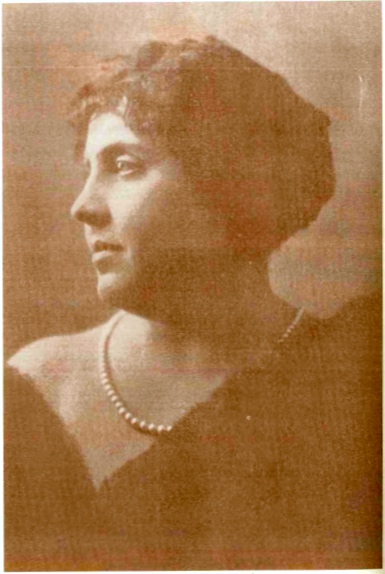
Afifa Karam (1883-1924)
“You have no right to my body, which you bought from my father with money. It used to be his right but now it has become mine,” this impassioned women’s rights advocate, who published her first novel in her early twenties, once wrote. Born into a Maronite family, Karam departed her seaside Lebanese town of Amchit at the age of 14, traveling to live in Shreveport, Louisiana.
Karam’s literary and journalistic career is impressive, she contributed articles to Al-Hoda Newspaper concerning women’s issues and inaugurated the first Arab women’s journals, including “The New World: A Ladies’ Monthly Arabic Magazine” for the diaspora. Her novels openly railed against patriarchy and arranged marriages and supported the right of women to live freely. Over the years, Karam has been dubbed “Defender of the Syrian Woman” and “Princess of the Pen.”
The artist
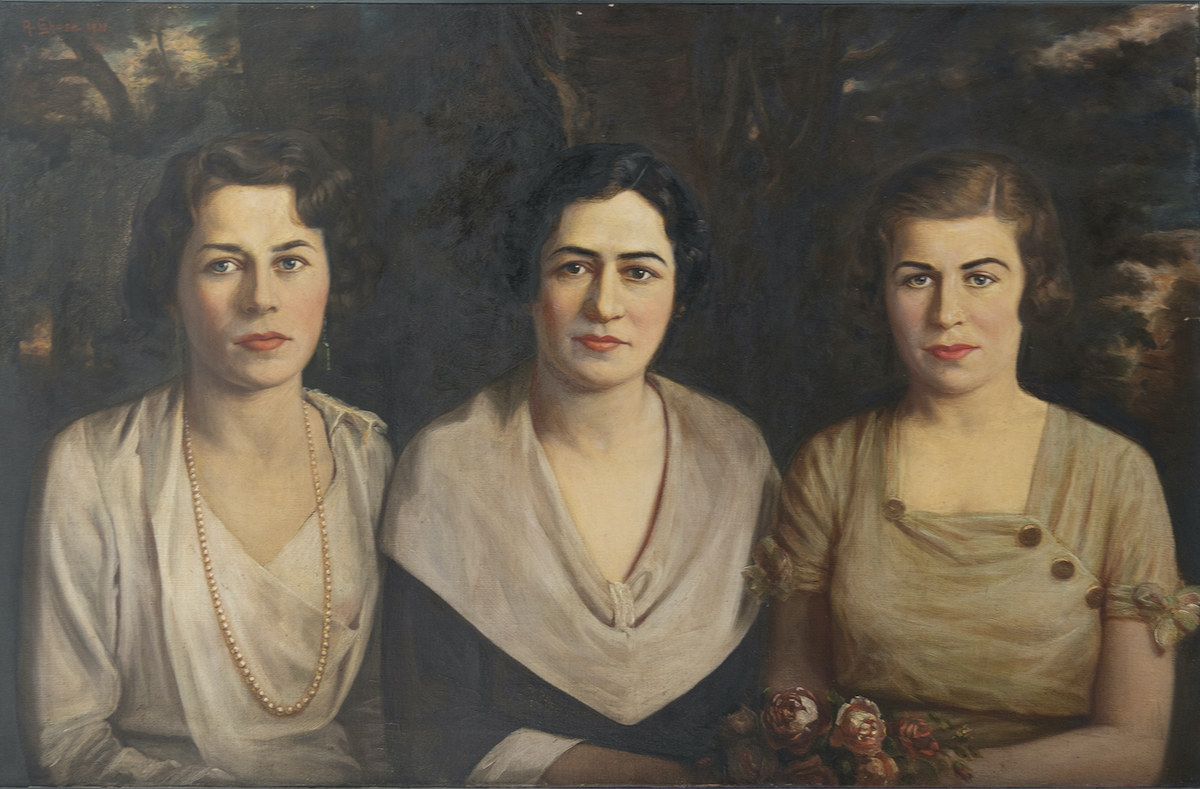
Assad Ghosn (1877-1941)
In 1891, Ghosn, who specialized in portraiture and landscapes, studied oil painting at Italy’s prestigious Accademia di Belle Arti di Roma. He moved to the United States in 1904, setting up an atelier in Brooklyn, New York and eventually settling in Richmond, Virginia. The Khayrallah Center has worked closely with the Ghosn family to preserve valuable material from the artist’s estate.
Aside from Ghosn’s classical portrait of three unknown women sitting side by side, one work of his that also stands out is his formidable early-19th-century portrait of the notable Mount Lebanon-born publisher Naoum Mokarzel. Averting his gaze, Mokarzel holds a pen — signifying his long-time dedication to the written word — over the Arabic newspaper ‘Al Hoda’ (The Guidance), which he founded in Philadelphia in 1898.
The performer
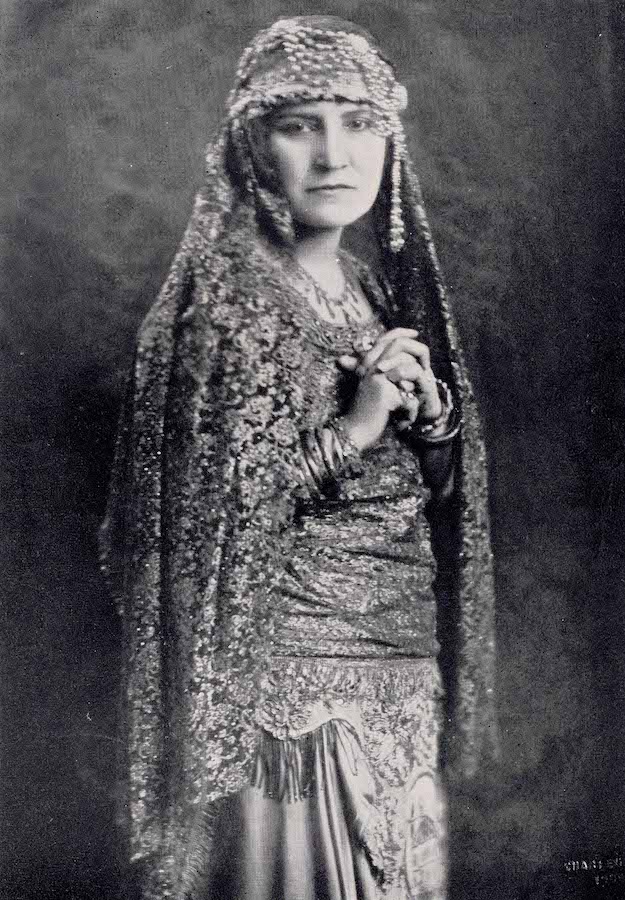
Rahme Haidar (1886-1939)
An interactive map in “Turath” indicates that between the 1910s and the 1930s, the Baalbak-born, public orator (and princess) Haidar delivered lectures about Greater Syria and the Holy Land in churches all across America — from Washington to Florida — and Canada. Haidar often dressed in oriental attire and performed musical biblical scenes. She was also a film director, helming and starring in “Gems of the East.”
In 1927, a review in Ontario’s “The Windsor Star” published these vital words of hers: “My motive in appearing before you tonight is to give you a clearer knowledge of Syria and the Syrians and to correct numerous false impressions that are current as to my country. It is a tiny land, dear to the heart of every Christian, but a land that has been tossed from hand to hand, robbed and overthrown by many nations.”
The musician
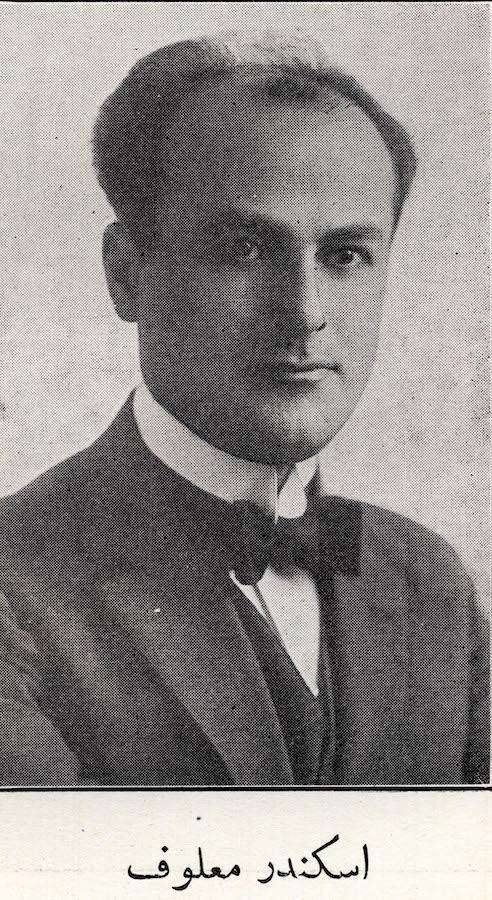
Alexander Maloof (1884-1956)
Old-school music lovers are in for a treat as “Turath” includes an eclectic collection of vinyl records from old Arabic labels such as Cleopatra Records and Arabphon. Maloof, an accomplished oudist and pianist and composer who lived in New York, founded an eponymous record company and orchestra. One of his best-known pieces is “America Ya Hilwa” (O Beautiful America), which he composed in 1912 in response to President William Taft’s call for submissions for a US national anthem.
Because of the evocative rush and emotional accessibility of their music — and the fact that they toured around the country — musicians like Maloof, Khater believes, had a far greater influence on Arab-American society than poets, who tended to move in elite circles. “If you’re (an immigrant) in Shreveport, Louisiana, or somewhere in Wisconsin,” he explains, “you don’t hear Arabic that much, except in the kitchen with your family. You keep your traditions inside your place of worship or home, but outside you have to become assimilated — more American — so people aren’t threatened too much. And then you go (out somewhere) and hear the oud… I think people must have been moved to tears by that.”



